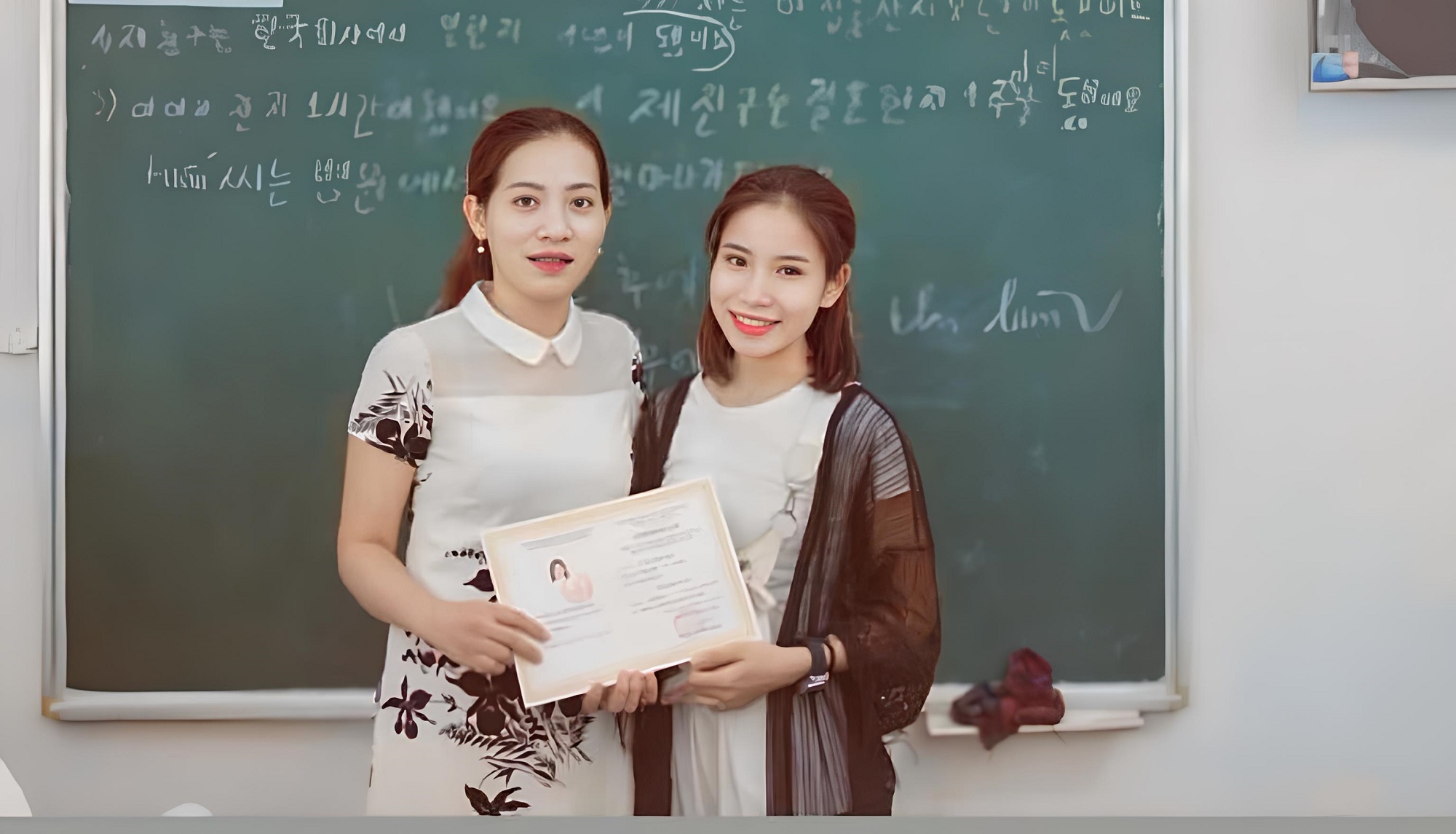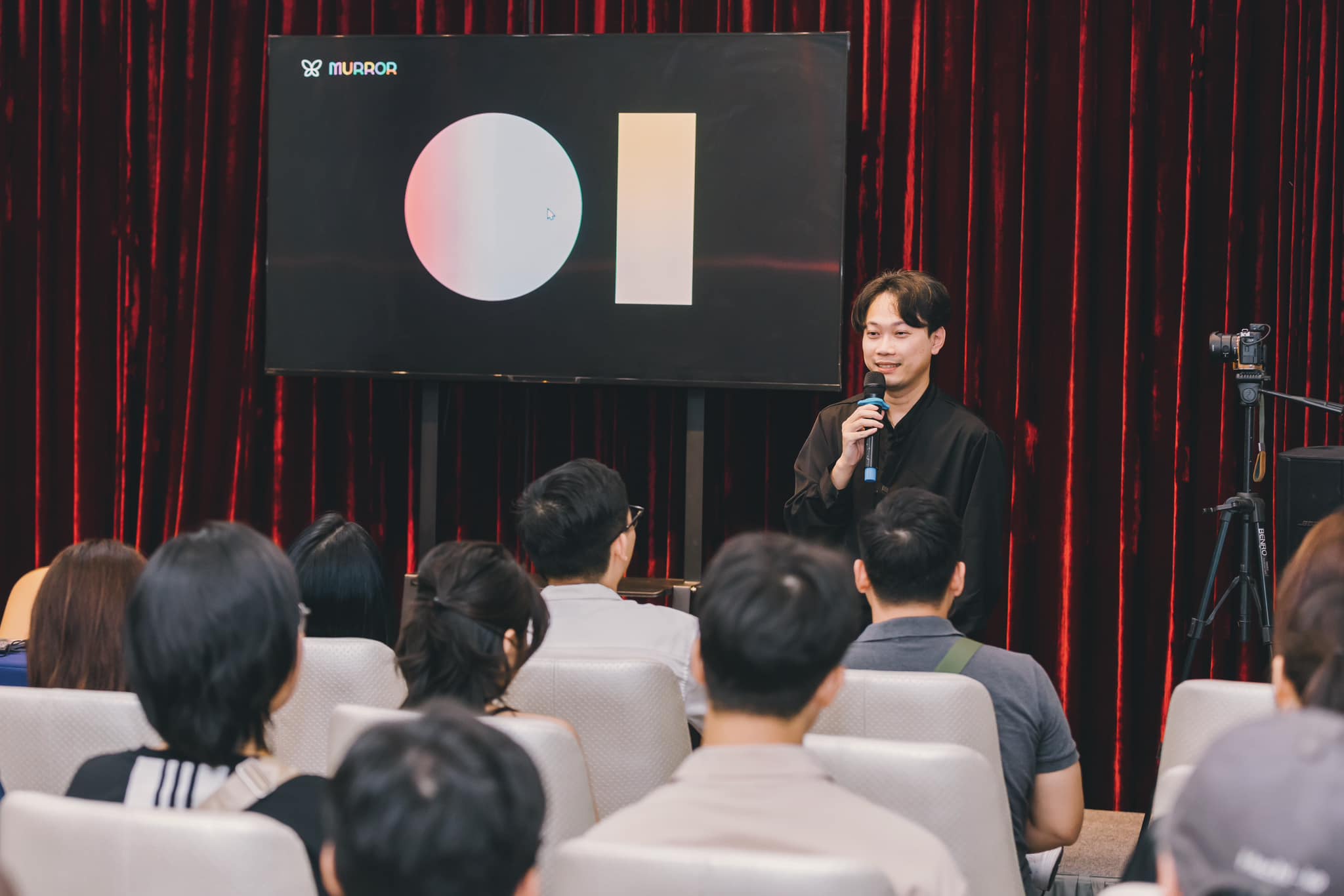The second of six children in a broken family from Ha Tinh, Tam chose vocational training and work over higher education to allow her siblings the opportunity to study. She taught herself Korean and later taught Vietnamese to foreigners, honing her language skills and immersing herself in different cultures.
Just a year later, she was offered a position as an assistant director at a Korean company. "Without a degree, you have to work twice as hard," she said. While working full-time, she also took evening classes in accounting, office administration, and English.
Through dedication, Tam was promoted to marketing manager, earning over 700 USD per month. At 19, she invested all her savings to start her own company.
"Without formal education, there were no grades or external pressure, forcing me to develop self-discipline and a thirst for knowledge," Tam shared. This lack of formal qualifications also fostered humility and gratitude. "Even a small piece of guidance meant the world to me," she explained.
Despite her early success, Tam still wishes she had attended university. "It would have provided a more structured approach to knowledge and a broader perspective," she reflected.
 |
Tam (right) receiving her elementary Korean language certificate in 2018. Photo provided by the subject. |
Tam (right) receiving her elementary Korean language certificate in 2018. Photo provided by the subject.
Similarly, Tran Quang Vinh, 37, a high school graduate living in San Francisco, secured job offers from tech giants like Google and Facebook through self-taught tech skills.
Vinh’s passion for technology ignited at the age of 7 when he began teaching himself computer graphics. By 10, he had mastered Illustrator and Photoshop. He didn't get into his preferred high school but became financially independent through graphic design after graduating from a regular high school.
Through various small projects, Vinh's income grew from 3 million VND to 4,500 USD per month. At 27, he moved to the US in search of greater opportunities, despite a previous design consultancy offer falling through. He landed a design director role but faced communication challenges. To overcome this, he practiced speaking in front of a mirror, actively participated in meetings, and sought feedback from colleagues.
A year later, Fox recognized his design as the "best of the year." Job offers poured in from Google, Microsoft, Uber, and Sony. After declining twice, he joined Google and later led the AI design team at Meta. In 2024, he left to found Murror, a software company.
 |
Vinh discussing his software company, Murror, which he founded in 2024. Photo: Vinh Tran |
Vinh discussing his software company, Murror, which he founded in 2024. Photo: Vinh Tran
Stories like Vinh’s and Tam’s are increasingly common. According to Wealth-X, almost 30% of the world's billionaires do not hold bachelor's degrees, including those who never attended or dropped out of university.
Associate Professor Nguyen Thi To Quyen from the Faculty of Sociology and Development at the Academy of Journalism and Communication cautions against misinterpreting these success stories. "Billionaires and successful individuals like Vinh and Tam simply lack formal degrees. They didn't attend university, but they continuously learn through other avenues," she said. "While many billionaires may not have completed university, the majority of successful people still hold degrees."
Quyen emphasizes the value of formal education. University provides a structured learning environment, fosters critical thinking, and helps develop a comprehensive worldview. In the professional world, degrees can also build trust with clients and partners.
Truong Thanh Hung, Vice Chairman of the National Advisory Council for Innovation and Entrepreneurship in the Central Region and CEO of FiNNO Group, acknowledges the rising trend of successful individuals without degrees, but notes their rarity within the current startup ecosystem. "All founders in FiNNO's incubation and acceleration programs have had at least one university degree," he stated.
However, Hung believes success depends on multiple factors, not just formal qualifications. Technical expertise is crucial for high-tech startups, while leadership, communication, and adaptability are key in the service sector.
"Degrees are no longer the core criteria for startup funding or team recruitment. A doctorate doesn't add value unless its relevance to the project is demonstrated," he said.
Career specialist Nguyen Viet Linh (Hanoi) offers a different perspective. Except for specialized fields, many companies now prioritize skills over formal education. International recruitment trends also de-emphasize gender, age, and degrees.
LinkedIn data reveals a 90% increase in degree-optional job postings in the UK from 2021 to 2022. In the US, 20% of job postings didn't require a university degree, up from 15% in 2021. 75% of recruiters consider practical skills the most important criterion.
Linh attributes this shift to the variable quality of mass higher education and the rapid evolution of technology, which constantly transforms production processes and work tools, impacting recruitment criteria.
Despite lacking a formal degree, Tran Quang Vinh has consistently been recognized for his contributions in the corporate world. However, he acknowledges the price he paid: loneliness. "I didn't have peers on my journey of self-discovery," he admitted. Working primarily with older colleagues made it harder to form close friendships and find common ground.
Ngo Dinh Tuan, 32, from Thanh Hoa, believes passion outweighs the importance of a university degree. "Every job has its challenges. Without passion, you can't succeed," he said.
Tuan yielded to parental pressure and attended university despite mediocre grades and a passion for agriculture. His family discouraged a farming career. While spending four years in lectures, he spent every summer at farms, learning different models.
In his final year, he dropped out to pursue farming. "My house was at one end of the village, the farm at the other, but I had to take a detour through the cemetery to avoid gossip," he recalled.
Now, he owns a farm with an annual revenue of around one billion VND, surpassing many of his university classmates in salaried positions.
Despite this, Tuan doesn't regret his time at university. "My electronics knowledge helped me access online resources faster and utilize social media for marketing and sales," he explained. If given the choice, he would still attend university, but study agriculture.
 |
Ngo Dinh Tuan on his family's farm in 2024. Photo provided by the subject. |
Ngo Dinh Tuan on his family's farm in 2024. Photo provided by the subject.
IT engineer Tran Quang Vinh observes a wave of 19- to 21-year-old millionaires emerging in the US, fueled by AI. Success is no longer solely defined by age or years spent in school, except in specialized fields like medicine.
"Whatever you study, supplement it with proactive skills, including research abilities and leveraging AI," Vinh advises. He believes Vietnam is transitioning from a follower mentality to an innovative one, presenting a significant opportunity for the younger generation to make a difference.
Associate Professor To Quyen emphasizes the accessibility of knowledge in the digital age, from books and social media to colleagues and peers. "The key is maintaining a lifelong learning mindset," she said.
For Thanh Tam, learning is no longer about outperforming others, but about living a more meaningful life, understanding oneself, and avoiding causing harm. "I continue to learn because I know it's the path to progress," she said.
Pham Nga












